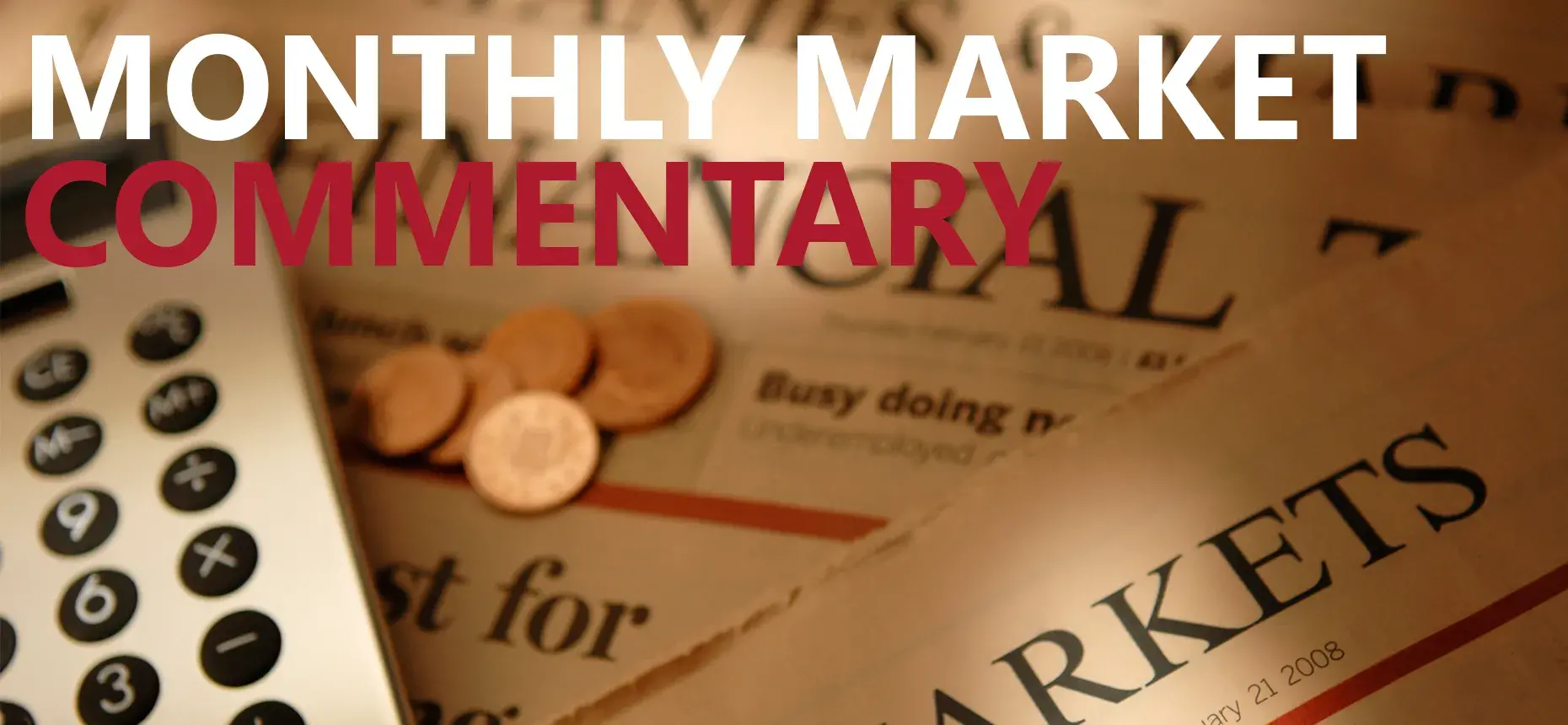The Chancellor has given the economy a generous fiscal boost in his 2021 Budget speech. He has extended many of last year’s emergency support measures, while implementing some new ones designed to stimulate the transition out of Covid -19 restrictions.
Tax and spending decisions together will add up to around £60 billion in the 2021-22 fiscal year, however, following on from this, and making good perhaps on his bid to ‘be honest with the UK population’ the Chancellor has also previewed the largest tax rise announced at any budget since 1993 a couple of years down the line.
While the highly successful vaccination programme should allow the UK recovery to start quickly from early summer, that recovery will take time. The Office for Budget Responsibility (OBR) forecasts that UK GDP will reach the pre-COVID high-water mark only midway through 2022 and thereafter, the OBR predicts that economic output will remain permanently 3% below the pre-COVID trend (i.e. the size of the economy if the pandemic had not occurred), although admittedly this is at the more pessimistic end of a range of professional forecasts.
The Chancellor has chosen to strengthen the public finances with an investment-led recovery plan with various incentives for firms to drive new growth in the economy. The government expects the recovery to be well underway by April 2023, at which point corporation tax on company profits will rise from 19% to 25%. But the rate will be kept at 19% for about 1.5 million smaller companies with profits of less than £50,000.
The overall market reaction to the Budget was muted. The pound was more or less unchanged on the Chancellor’s announcements. More stimulus today, but tightening further down the line, leaves expectations for monetary policy more or less unchanged too.
The national debt has risen to its highest level in more than half a century, and it will rise again to 109% of GDP by 2023. But the cost of servicing it, expressed as a percentage of government revenues, is cheaper than it has been in the last three centuries. Government borrowing costs are low because both the real rate of interest and inflation have been driven lower since the 1980’s by profound structural forces such as demographic change, rising inequality, falling productivity and technological disruption. None of these forces are likely to have been reversed by COVID and some of them have been reinforced. In other words, while borrowing costs are likely to rise as the economy continues to normalise, they are unlikely to return to anything like the average of the last few decades. It is expected therefore that higher government borrowing to invest in projects that will grow the future tax base in the short term will contribute to future fiscal soundness.
Evidence from studies of historic economic and health-related shocks suggest that the main long term effects of this time are likely to be long-term unemployment and a lack of confidence in future wellbeing, leaving consumers with a lower propensity to spend and businesses with a lower propensity to invest. The majority of the almost £60 billion of new tax and spending measures this year are aimed at combatting these outcomes.
The furlough scheme will be extended to September, with only 10% employer contributions from July and 20% from August. Self-employed income support is also extended, and the 600,000 newly self-employed that were shut out of the scheme last year now have an opportunity to claim. Business grants of £5 billion are available to COVID-hit service and hospitality companies; business rates discounts are extended to December and the reduction on VAT applied to hospitality industries until September. A new recovery loan scheme will also be introduced.
To date, these schemes have successfully kept unemployment relatively contained, but the latest ONS Business Impact of COVID Survey suggests that 15% of businesses have low confidence they will survive beyond spring. Clearly, the extra support was needed to ensure that future layoffs are made at a time when the rest of the economy is in better health.
By far the biggest single stimulus measure announced in the Budget was the 130% “super deduction” for business investment spending, particularly equipment and machinery. This will cost the government £25 billion over two years.
The very large increase in corporation tax from 19% to 25% in 2023 is the first rise in the headline rate since Denis Healey’s Budget of 1974. Because successive tax cuts since then also broadened the “tax base” (by removing loopholes, exemptions, etc.) the corporate tax take relative to the size of the economy has remained relatively steady. The announced tax increase will not simultaneously narrow the tax base, and so the OBR estimates that corporate tax take and indeed the broader total tax take will reach a percentage of GDP not seen since 1969.
One significant new addition was the announcement of a new National Savings product linked to green public investment. Other countries are already starting to issue green sovereign bonds and the UK government is also embracing the idea that they can help meet climate change goals and objectives. For green bonds, strict use of proceeds will be required in order to ensure that financing is used only for projects aiming to achieve an environmental and social benefit.
As the Chancellor noted, it will take many governments many decades to repay the cost of the pandemic, and he made the case for starting this journey now. But as is the case for this Budget, even the longest journeys start with a small step; so changes to tax regimes were quite limited.
The Chancellor has maintained the pre-pandemic promise not to raise the UK rates of income tax, national insurance or VAT. But he plans to raise tax revenues by freezing the personal allowance at £12,570 and the higher rate income tax threshold at £50,270, from April 2022 to April 2026.
Scotland - As announced in the Scottish Budget on 28 January, there will be no changes to the Scottish rates of tax. All the bands will increase in line with CPI as follows;
Starter rate - £12,570 - £14,667
Basic rate - £14,667 - £25,296
Intermediate rate - £25,296 - £43,662
Higher rate - £43,662 - £150,000
Surprisingly, despite recommendations to the contrary by the Office of Tax Simplification, no changes to the capital gains tax regime were announced. The annual capital gains tax allowance will be frozen at £12,300 for individuals (and personal representatives) and £6,150 for trustees of settlements, until April 2026. However the Government intends to publish further tax consultations on 23 March and we will have to wait and see if CGT changes are amongst them.
The band of savings income that is subject to the 0% starting tax rate will remain at its current level of £5,000 for 2021-22. The starting rate for savings is aimed at supporting savers on incomes of less than £17,570 for 2021-22.
The inheritance tax (IHT) nil-rate bands will also remain at existing levels until April 2026. That gives certainty but if families’ wealth increases along with a recovery in the economy, so could their IHT liabilities which makes financial planning all the more important for families wishing to pass on a legacy to younger generations.
The nil-rate band will continue at £325,000, the residence nil-rate band will continue at £175,000, and the residence nil-rate band taper will continue to start at £2 million. Qualifying estates can continue to pass on up to £500,000 and those of a surviving spouse or civil partner can continue to pass on up to £1 million without an inheritance tax liability. With the bands frozen for a further five years, this will however bring more estates into the IHT net and increase the requirement for advice on estate planning.
The business asset disposal relief, where entrepreneurs pay a reduced 10% rate of capital gains tax on qualifying disposals, remains unchanged with a lifetime limit of £1 million.
The changes to off payroll working, often referred to as IR35, will now come into force from April 2021. This will see large and medium sized private companies becoming responsible for deciding if contractors are effectively ‘employees’. If so, these companies must collect income tax and NICs from the contractor’s fee and pay it over to HMRC. These new rules were due to be introduced from April 2020 but were delayed due to the COVID-19 pandemic.
The adult ISA annual subscription limit for 2021-22 will remain unchanged at £20,000 and the Junior ISA (JISA) and Child Tax Fund allowance will also remain unchanged at £9,000. JISA’s give children control at 16 and access at 18, an ideal way to teach children about money and investing. Many people fortunate to have remained fully employed over the pandemic period have built up considerable sums in savings during the last year as the majority of discretionary spending opportunities (holidays, socialising, events) have been severely reduced. Investing in a Stocks and Shares ISA is one way to support the growing economy over the next few years, while also taking advantage of the tax free growth environment they provide.
Pensions
The pensions lifetime allowance has been frozen at £1,073,100 until April 2026. There were no changes to pension tax relief in the Chancellor’s Budget. The LTA freeze will require careful planning for those who have not already obtained some form of fixed protection in this area.
Support for Home Buyers
The government will extend the temporary increase in the residential stamp duty land tax nil-rate band to £500,000 in England and Northern Ireland until 30 June 2021, however this is not being extended in Scotland.
The government will also introduce a new mortgage guarantee scheme in April. This will provide a guarantee to lenders across the UK who offer mortgages to people with a deposit of just 5% on homes with a value of up to £600,000. The scheme will be available for new mortgages up to 31 December 2022, increasing the availability of mortgages on new or existing properties for those with small deposits.
Is That Everything?
Possibly not. The government intends to hold some separate consultations on tax policy, which will be outlined in more detail in a paper due out on 23 March 2021. This may look at the reformation of tax regimes such as council tax and stamp duty land tax. But the Chancellor has so far ignored calls from the Office of Tax Simplification to implement sweeping changes to the inheritance tax and capital gains tax regimes. So we will have to wait and see if he decides to act on their proposals later this month.
Full details of the Chancellors announcements are at: https://www.gov.uk/government/news/budget-2021-what-you-need-to-know
The FCA have announced that they will be amending regulations to increase the single transaction threshold for contactless card payments from £45 to £100 and increase the cumulative transaction threshold from £130 to £300. Banks and other payment providers do not have to adopt the higher limits however they will represent new upper ceilings. Check with your bank or payment provider for their limits over the coming months.
Contactless payment has increased significantly during the pandemic period and the FCA rationale for this extension is that an increase in the single transaction threshold will enable consumers to use contactless card payments for higher value transactions such as purchasing fuel and weekly groceries, in addition to the lower value transactions currently being undertaken.
Financial service firms must ensure they sufficiently mitigate the risk of unauthorised transactions and fraud, including by having the necessary fraud monitoring tools and systems in place and taking swift action where appropriate. The amendments seek to ensure payments regulation keeps pace with changing consumer and merchant expectations for faster payment experiences, while ensuring that consumers are protected when using contactless payments. Increasing the regulatory thresholds will allow the industry to increase contactless limits in the future, up to the new higher limits set, to reflect the economic environment and changing consumer behaviours and merchant expectations. The FCA will be monitoring how successful this move is, looking for continued growth in the number of contactless payment transactions, without any significant increase in fraud or associated crime and has indicated that it will engage with trades bodies and firms to assess the impact of these changes on consumer outcomes.
Further information at: (FCA pdf will go here)
In what was greeted as good news for many businesses, on January 15 2021 the Supreme Court found substantially in favour of the FCA and in turn policy holders in the business interruption insurance test case relating to losses suffered due to the Coronavirus pandemic.
The result widens the door for claims by the estimated 370,000 policy holders who have cover against a Notifiable Disease and will significantly help businesses in the retail, leisure and hospitality industries who were instructed to close their premises and were unable to rely on on-line business instead.
The FCA issued its final guidance on March 3rd 2021 “setting out the types of evidence and methodologies which policy holders may wish to use when proving the presence of coronavirus in a particular area around their premises”.
You can find this here: https://www.fca.org.uk/publications/finalised-guidance/business-interruption-insurance-test-case-proving-presence-coronavirus
The speed of the vaccination programme is growing with over 21 million people receiving their first dose in England and Wales and 1.7 million in Scotland at the time of writing - but you can see how it’s going to take a very long time to get two shots to everyone - and then you have to factor in the production issues that may also slow things a little. It looks as if we must be patient for a while yet.
Stock markets are wrestling with this too. On upbeat days, investors buy up the ‘cyclical’ stocks that should do well if the pandemic is contained and economies can recover in earnest. But then some poor data pops up and these companies’ shares drift lower again, their climb replaced by the ‘growth’ businesses that are less affected by COVID and likely to increase profits at a steadier, if lower, rate than their cyclical counterparts. Through it all though, stock markets, broadly, remain on an upward trajectory overall.
There’s a lot swirling around in markets and economies right now. UK inflation was slightly higher than expected in December, coming in at 0.6%, well below the 2% target for the Bank of England. UK unemployment continues to rise, albeit at a creep. The official rate for the three months to 31 October was 4.9%. The real figure is likely to be higher, given the extra restrictions that were added in November and December, culminating in a full nationwide lockdown.
Underpinning most investors’ outlooks for stocks and bonds is the assumption that the Fed and other central banks stand ready to buy if any market wobbles increase. They still have quite a bit of ammunition ready for if this were to occur. There are some grumbles that this policy is effectively a backstop for the wealthy as it keeps the value of financial assets high, which disproportionately helps those who own them – who disproportionately are the richest people in society. However, it helps workers too. It just takes a more indirect route.
The central banks want to ensure that the cost of borrowing for companies remains low so they can easily roll over their debts and make the interest payments. That way they stay afloat and keep people employed. The cost of that financing is intrinsically linked to the price of bonds, especially government ones. If the price of these bonds falls, the cost of borrowing rises. Thus the need to keep them high. And the price of stocks is linked to the price of government bonds: today’s value for future profits, which we call share prices, goes up when bond yields are low and falls when they rise.
At the moment, it’s in everyone’s interest to keep interest rates low. The Bank of England is even understood to be preparing for the possibility of negative interest rates should inflation breach their 2% target. This is not a given, though, it’s just an understanding. But one to keep in mind.
Our office is manned by a skeleton staff during normal office hours, Monday to Friday 9am-5pm.
While working at home staff have access to our systems and software and are working and responding to queries as usual.
Gordon Forbes: gordon@calam.co.uk: Mobile 07770 335717
Pauline Forbes: pauline@calam.co.uk: Mobile: 07968 266395
Neil Sutherland: neil@calam.co.uk
Garry Howe: garry@calam.co.uk
Ryan Cornwall: ryan@calam.co.uk
E & O E
Risk Warning: Remember the value of any investment can go down as well as up and you may get back less than you originally invested.
Suitability Warning: You should consider affordability and your personal capacity for loss should an investment not proceed as projected or, in extremis, fail completely, before proceeding with any speculative investment. You should not invest if you are not prepared for the possibility that investments can fall in value in the short term and may fluctuate in value over time.


